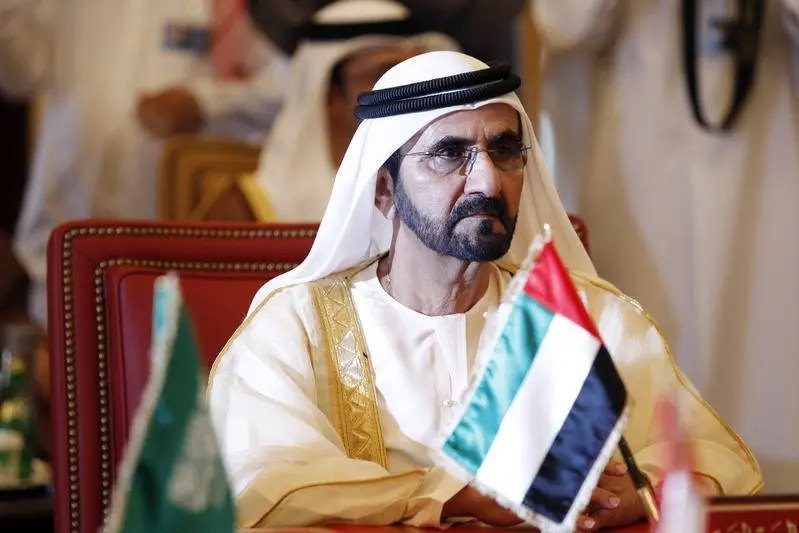UAE citizens’ well-being is a priority that has consistently guided the vision and actions of the nation’s leadership. Sheikh Mohammed bin Rashid Al Maktoum, Vice President and Prime Minister of the United Arab Emirates and Ruler of Dubai, recently emphasized that all national policies and initiatives are fundamentally focused on enhancing the quality of life for Emirati citizens. This commitment spans various aspects of life, including healthcare, education, economic opportunities, infrastructure, and social development. By placing the citizens at the center of national development, the UAE continues to build a model of sustainable progress and prosperity that balances growth with human well-being.
A Leadership Philosophy Centered on Citizens
Sheikh Mohammed’s statements reinforce a longstanding philosophy of governance in the UAE: development is meaningful only when it directly benefits the people. Citizens are seen as the cornerstone of the nation’s achievements, and their happiness, security, and prosperity are inseparable from the country’s success.
This approach extends beyond material provisions. It reflects a holistic view that well-being includes emotional, social, and cultural dimensions alongside economic stability. The UAE leadership believes that citizens who feel valued, supported, and empowered are more likely to contribute positively to the nation’s continued growth.

Strategic Initiatives for Citizens’ Well-Being
The UAE has implemented multiple strategies to promote citizens’ well-being across diverse sectors. Each initiative is designed to address specific needs while reinforcing the broader vision of a prosperous, stable, and inclusive society.
Infrastructure and Housing
Providing stable and comfortable living conditions is a fundamental element of well-being. The UAE government has launched comprehensive housing programs to ensure that every Emirati family has access to modern, safe, and affordable homes. These programs include innovative urban planning projects that integrate green spaces, community facilities, and smart infrastructure, reflecting the country’s commitment to both physical comfort and environmental sustainability.

Urban development initiatives aim to create vibrant communities that support active lifestyles, social interaction, and accessibility to essential services. By investing in infrastructure, the leadership ensures that citizens not only have houses to live in but also thrive in environments that nurture their overall well-being.

Healthcare and Education
Healthcare and education are pillars of human development and essential for maintaining citizens’ well-being. The UAE has prioritized the expansion and modernization of medical facilities to offer citizens access to world-class healthcare services. These investments include specialized hospitals, clinics, and preventive care programs that focus on physical and mental health.
Education is another key focus area. The government has established high-quality schools and higher education institutions that provide citizens with the knowledge and skills required for personal growth and national progress. Scholarships, training programs, and lifelong learning opportunities are widely available, ensuring that education remains a tool for empowerment and social mobility. By strengthening healthcare and education, the UAE leadership ensures that citizens can lead productive, healthy, and fulfilling lives.
Economic Empowerment
Economic stability and opportunities are crucial for citizens’ well-being. The UAE has implemented programs to support entrepreneurship, small businesses, and job creation, enabling Emiratis to participate actively in the economy. Training initiatives equip young people with skills relevant to emerging industries, preparing them for the challenges of a rapidly changing global economy.
Through such measures, the government not only promotes financial independence but also fosters a culture of innovation and self-reliance among citizens. Economic empowerment enhances well-being by providing individuals and families with the means to achieve security, fulfill ambitions, and contribute meaningfully to society.
Social Development and Community Engagement
Well-being extends beyond material needs to include social cohesion and community participation. The UAE emphasizes initiatives that encourage active engagement, cultural exchange, and social harmony. These programs promote understanding, inclusivity, and a sense of belonging, strengthening the social fabric of the nation.
By encouraging citizens to participate in decision-making processes, community projects, and volunteer activities, the leadership fosters a sense of purpose and civic pride. A strong, united community contributes significantly to overall well-being, creating an environment where citizens feel connected, respected, and supported.

Global Recognition of UAE Citizens’ Well-Being Initiatives
The UAE’s holistic approach to citizens’ well-being has garnered international recognition. Globally, the nation is praised for creating a society where development is aligned with human welfare. Rankings in global happiness, quality of life, and economic opportunity reflect the success of the UAE’s citizen-focused policies.
This recognition reinforces the nation’s commitment to continuous improvement. The leadership remains dedicated to refining programs, adapting to new challenges, and ensuring that every policy and initiative continues to enhance citizens’ well-being. By setting a benchmark for other nations, the UAE demonstrates that development and human welfare can coexist in harmony.
Future Outlook: Sustaining Well-Being
Looking ahead, the UAE is poised to maintain and expand its focus on citizens’ well-being. The leadership plans to leverage technology, innovation, and sustainable practices to further enhance quality of life. Smart city initiatives, digital governance, and eco-friendly projects aim to provide citizens with convenience, safety, and a better environment to live in.
Programs will continue to evolve in response to societal needs, including healthcare advancements, educational reforms, and economic diversification. By listening to citizens and adapting policies accordingly, the UAE ensures that development is inclusive, equitable, and responsive.
Conclusion
Sheikh Mohammed’s reaffirmation of the UAE’s commitment to citizens’ well-being highlights the leadership’s holistic vision of development. By prioritizing healthcare, education, economic empowerment, social cohesion, and infrastructure, the nation has established a model where citizens’ welfare is inseparable from national progress.
UAE citizens’ well-being is not merely a policy objective—it is a guiding principle that shapes the nation’s decisions and long-term strategies. As the country continues to grow, this commitment ensures that every Emirati enjoys a secure, dignified, and prosperous life. The UAE’s success story demonstrates that when leaders place human well-being at the center of governance, both individuals and the nation can flourish together.
Do follow UAE Stories on Instagram
Read Next – Why Electric Vehicles Are Good for the Planet but Not for Roads














